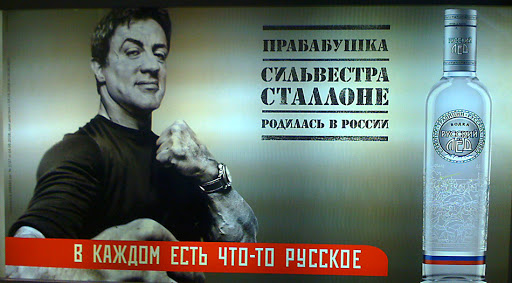Oliver Bullough has chosen an original way to describe a whole country. By charting the life of a charismatic Orthodox priest, Father Dmitry Dudko, he paints a picture of the travails and tragedies of Soviet Russia. “In tracing the life and death of Father Dudko, I am tracing the life and death of his nation”, writes the author. Dudko, who was the Western media’s favourite dissident cleric in the 1970s, was born in 1922 to a peasant family in Berezino and died in 2004. He witnessed and suffered through all the social upheavals and the failed experiments of a brutal planned economy.
Through the lens of his life, Bullough seeks to understand why Russia is drinking itself to death. Between 1940 and 1980 alcohol consumption increased eight-fold. One devastating consequence of this national binge is depopulation. In 1989 Russia had 153,000 villages. Today, 20,000 of these have been abandoned and another 35,000 have fewer than ten inhabitants. In 2010, deaths outnumbered births by 240,000.
Bullough explains the problems of the Orthodox Church, which Dudko joined as young man: its destruction after the Revolution, its rehabilitation by Stalin during World War II, its infiltration by Communist agents. Today, “despite its long repression and then its close association with a brutal regime, [it] has returned to its role as the comforter of the lowest in society.”
In his seminary days Father Dudko clashed with the authorities for writing poetry that explored his faith and the problems of his country. For these “anti-Soviet” activities he was sentenced to 10 years in the gulag. He served them in the prison camp of Inta, 2,000 km from Moscow. Now it is a small town in a wilderness with few amenities.
Here the author meets a sympathetic character among the surly officials: Nikolai Andreyevich, a local amateur historian of the gulag who spends much of his time in the lonely yet endearing task of searching for lost graveyards of the Stalinist years and planting rough crosses on them. “The cross… is a symbol of the suffering these people went through.” We learn that two million people died in the gulags during the War. Bullough also meets Leonid Plyusch, described as a “communist by conviction”, who nonetheless “felt the ground had moved from under me” when he learned of Stalin’s crimes after his death.
After his release from prison, Father Dudko became a famous preacher whose sermons were copied down and distributed through samiszdat. He stressed the value of the individual, of humaneness, forgiveness, love and trust – indeed, all the features that make life possible, features which Communism had tried to stamp out. Inevitably, because of the sincerity and passion with which he preached the Christian message, he attracted many followers among young intellectuals and dissidents. He was arrested and exiled many times.
But then, just as the reader has become quite convinced of Dudko’s heroism, we are shocked to learn that he cracked. Six months after his arrest in 1980 for giving “slanderous materials” to a Western journalist, he recanted his “errors” on national television. The Soviet media gleefully spread the stunning news everywhere. Faced by a choice between being a “patriot” and supporting the system, or living the Gospels and being treated as a traitor, Father Dudko chose the former.
At this point Bullough compares Dudko to Winston Smith at the end of Orwell’s 1984. He comments, “I felt sorry for him but I no longer liked him.” This seems rather harsh, given the horrors that Dudko had experienced, especially during his years of privation in Inta, when the temperature would often fall to minus 34 in the winter.
Although it contains many compelling vignettes of Russian life in the last 50 years – most of them not conducive to optimism – the book is somewhat discursive and rambling, inconclusive and repetitive. The lack of maps of the country or the places where Dudko lived means the reader has to grope through the endless steppes and wastelands without signposts. If there is a message, it is that there are small seeds of hope for Russian society – even if they are almost drowned in vodka.

